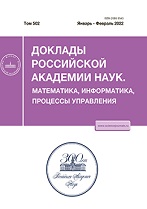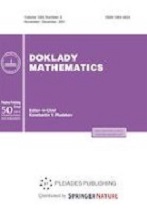|
CONTROL PROCESSES
Abductive reasoning in explanation problems of an observed effect
S. N. Vassilyev
V. A. Trapeznikov Institute of Control Sciences of Russian Academy of Sciences, Moscow, Russian Federation
Abstract:
The problems of artificial intelligence, as well as control and decision-making with incomplete or inaccurate information, cover a wide class of problems of abductive explanation, including tasks in terms of cause–effect. This paper is devoted to the logical formation of hypotheses that explain observed effects. Means of representing knowledge and hypothesizing are proposed. A language is introduced that has the property of substitutability. The properties of the language and calculi introduced on its basis provide a convenient combination of deduction and hypothesizing. Unlike well-known logical methods of abduction, the proposed tools provide derivation of hypotheses (minorants) that are necessary and sufficient for a formal explanation of the observed effect. Based on the hypotheses-minorants, in combination with the basic theory of subject domain, reliable causes of the observed effect are formed or relevant circumstances leading to these causes are found. Moreover, in situations where there is also empirical data, these causes and circumstances can also be formed in plausible versions. Examples from technology and medicine are considered.
Keywords:
abductive reasoning, plausible inference, explanation of observed effects, diagnosis, artificial intelligence, intelligent control.
Received: 01.06.2020
Revised: 01.06.2020
Accepted: 04.06.2020
Citation:
S. N. Vassilyev, “Abductive reasoning in explanation problems of an observed effect”, Dokl. RAN. Math. Inf. Proc. Upr., 493 (2020), 90–94; Dokl. Math., 102:1 (2020), 337–341
Linking options:
https://www.mathnet.ru/eng/danma101 https://www.mathnet.ru/eng/danma/v493/p90
|


| Statistics & downloads: |
| Abstract page: | 135 | | Full-text PDF : | 62 | | References: | 17 |
|





 Contact us:
Contact us: Terms of Use
Terms of Use
 Registration to the website
Registration to the website Logotypes
Logotypes








 Citation in format
Citation in format 